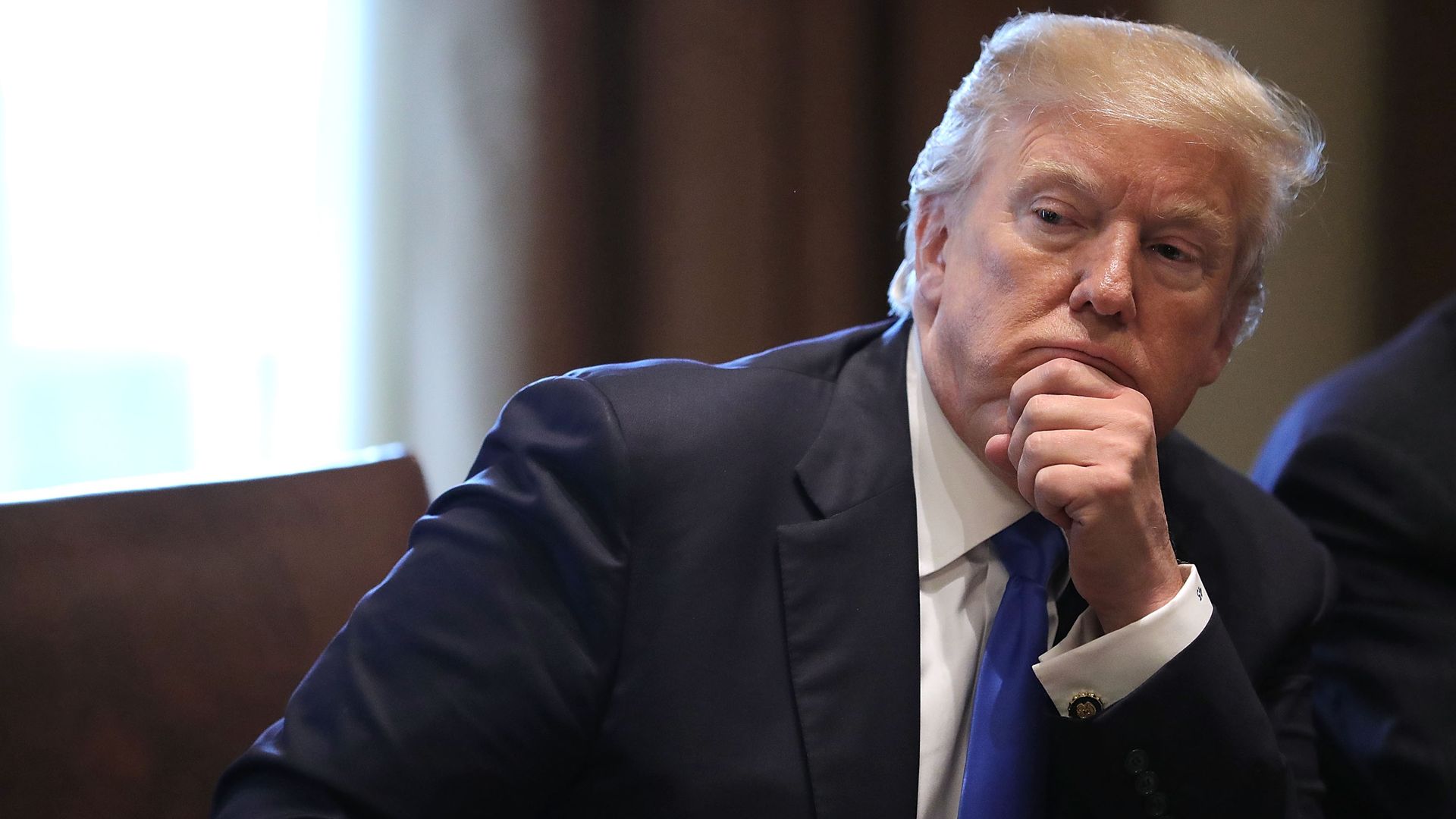Apr 1, 2018 - Politics & Policy
Some Trump policies make life harder for highly-skilled foreigners
Add Axios as your preferred source to
see more of our stories on Google.

President Donald Trump (R) at a White House meeting on immigration reform. Photo: Chip Somodevilla / Getty Images
